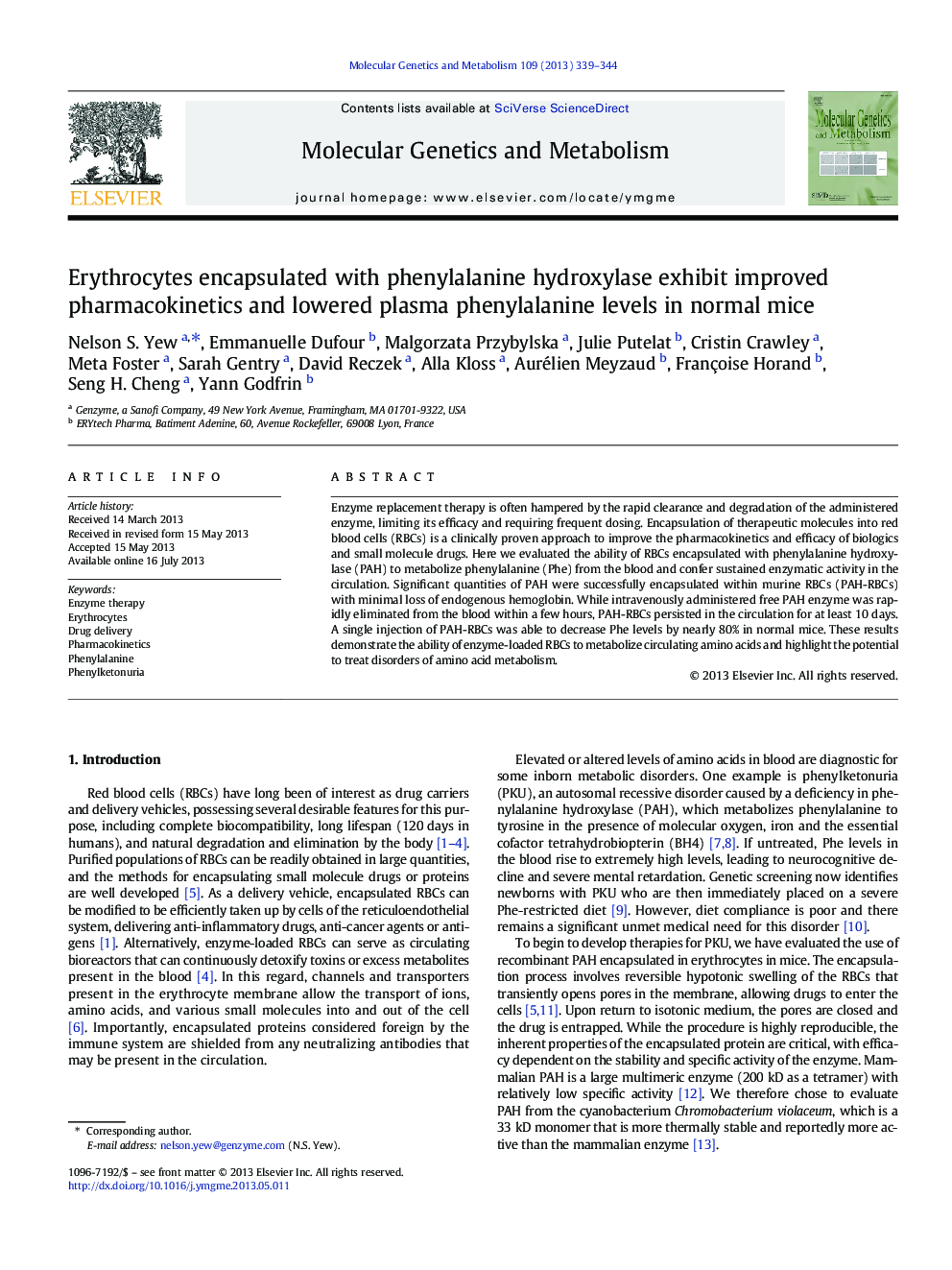| Article ID | Journal | Published Year | Pages | File Type |
|---|---|---|---|---|
| 10833648 | Molecular Genetics and Metabolism | 2013 | 6 Pages |
Abstract
Enzyme replacement therapy is often hampered by the rapid clearance and degradation of the administered enzyme, limiting its efficacy and requiring frequent dosing. Encapsulation of therapeutic molecules into red blood cells (RBCs) is a clinically proven approach to improve the pharmacokinetics and efficacy of biologics and small molecule drugs. Here we evaluated the ability of RBCs encapsulated with phenylalanine hydroxylase (PAH) to metabolize phenylalanine (Phe) from the blood and confer sustained enzymatic activity in the circulation. Significant quantities of PAH were successfully encapsulated within murine RBCs (PAH-RBCs) with minimal loss of endogenous hemoglobin. While intravenously administered free PAH enzyme was rapidly eliminated from the blood within a few hours, PAH-RBCs persisted in the circulation for at least 10Â days. A single injection of PAH-RBCs was able to decrease Phe levels by nearly 80% in normal mice. These results demonstrate the ability of enzyme-loaded RBCs to metabolize circulating amino acids and highlight the potential to treat disorders of amino acid metabolism.
Related Topics
Life Sciences
Biochemistry, Genetics and Molecular Biology
Biochemistry
Authors
Nelson S. Yew, Emmanuelle Dufour, Malgorzata Przybylska, Julie Putelat, Cristin Crawley, Meta Foster, Sarah Gentry, David Reczek, Alla Kloss, Aurélien Meyzaud, Françoise Horand, Seng H. Cheng, Yann Godfrin,
